
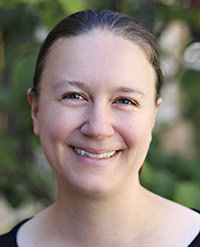
Translational Research Scholars Program
"Because of the Translational Research Scholars Program, I reached out to someone I didn’t know particularly well, but whose science really overlapped well with mine. This interaction helped me improve the science and think broadly about treatment and clinical implications for my work.”
- Dr. Sara Kover, UW Department of Speech & Hearing Sciences

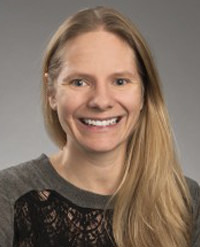
Translational Research Scholars Program
"The Translational Research Scholars Program makes me feel connected to a larger network of researchers that I can call upon. I think I would feel isolated without that.”
- Dr. Cynthia Curl, Boise State University

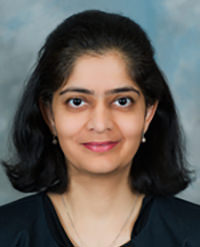
Translational Research Scholars Program
"The pilot data acquired during the Translational Research Scholars Program will help establish feasibility and provide preliminary data to support a larger NIH-funded study. The funding from ITHS has been crucial in getting some of this pilot data.”
- Dr. Sujata Pradhan, UW Department of Rehabilitation Medicine

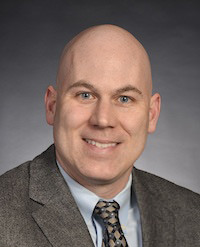
Translational Research Scholars Program
"The funding I got through the Translational Research Scholars Program helped me to do some experiments in my lab. But, more importantly, the actual programs I was partaking in, the monthly conference calls, onsite visits, career development aspects, and other things helped me put together a strong R21 application.”
- Dr. Kirk Hevener, Idaho State University

The Translational Research Scholars Program is a faculty career-development program that provides promising early stage investigators from the WWAMI (Washington, Wyoming, Alaska, Montana, and Idaho) region with a high-quality, targeted and structured career development package for one year. The package includes components such as research funding up to $10,000, mentoring, peer-to- peer feedback and expert review services.
Translational Research Scholars Program seeks to:
- Increase the number of early stage investigators who are successful in submitting and obtaining K or R-series funding from the NIH
- Promote retention of scholars in translational research
Potential scholars will be nominated by Department Chairs/Division Heads/Deans (or equivalent position). The cohort will be 10 awardees representing a diversity of translational and clinical research within the WWAMI region.
Application Status
- Application Opens:
December 7, 2016 - Application Deadline:
February 17, 2017 @ 11:59pm
Key Dates
- Nomination & Application Deadline: February 17, 2017
- Notification by: April 28, 2017
- Program Start Date: June 1, 2017
- Program End Date: May 31, 2018

Eligibility
Prospective Scholars
Department Chairs/Division Heads/Deans (or equivalent position) will nominate highly promising early stage investigators from the WWAMI region who are conducting translational research.
Determining Eligibility
- Eligibility Requirements:
- Early stage investigators from WWAMI region ITHS partner institutions and universities:
- Benaroya Research Institute, Boise State University, Fred Hutchinson Cancer Research Center, Group Health Research Institute, Idaho State University, Montana State University, Seattle Cancer Care Alliance, Seattle Children’s, University of Alaska Anchorage, University of Alaska Fairbanks, University of Idaho, University of Montana , University of Washington, University of Wyoming, Washington State University, or other academic institutions in the WWAMI region
- Applicant must be prepared to submit a K or R application by the end of the one year program
- Department Chair/Dean (or equivalent position) nomination and commitment to provide 10-20% release time for selected scholars
- A primary mentor at time of nomination/application who will provide mentorship and constructive feedback during the program
- Applicant should have a publication track record
- Project must have relevance to Clinical and/or Translational Research
- Applicants must be able to commit a minimum of 4 hours a week to scholar activities
- Early stage investigators from WWAMI region ITHS partner institutions and universities:
- Applicants are ineligible if they have obtained R-series funding as a principal investigator.
- Applicants with a current K award or preparing a K or R resubmission are eligible.
- The program strongly encourages nominees from the entire WWAMI region. Strong consideration will be giving to applications outside the University of Washington.

Funding
Support up to $10,000 in research funds for one year. Please review the NIH guidelines for allowable costs.
Schools/departments/divisions nominating scholars will be required to provide 10-20% release time for their selected scholars. Non-UW institutions are responsible for indirect costs.
Cohort
The ITHS TL1 Program supports up to 10 scholars per cohort. Translational Research Scholars represent a diversity of translational and clinical research within the WWAMI region.
2015-17 Cohort
Joseph M. Cerimele, MD, MPH
Acting Assistant Professor, Psychiatry and Behavioral Sciences
University of Washington
Project Title: Primary Care Clinicians’ Experiences Treating Patients with Bipolar Disorder
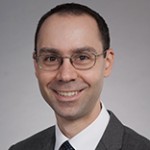
Brian D. Cherrington, MS, PhD
Assistant Professor, Zoology and Physiology
University of Wyoming
Project Title: Peptidylarginine Deiminase Inhibitors as Epidrugs for Pituitary Tumors

Allison Cole, MD, MS
Assistant Professor, Family Medicine
University of Washington
Project Title: Facilitators and Barriers to Implementation of a Proactive Colorectal Cancer Screening Program across the WWAMI Region

Cynthia L. Curl, PhD, MS
Assistant Professor, Community and Environmental Health
Boise State University
Project Title: Pilot Study to Measure the Effect of an Organic Diet during Pregnancy

Haiwei Gu, PhD
Acting Assistant Professor, Anesthesiology and Pain Medicine
University of Washington
Project Title: Breast Cancer Metabolite Biomarker Discovery Using Global Profiling Multiple Reaction Monitoring Transitions
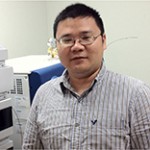
Kirk E. Hevener, PharmD, PhD
Assistant Professor, Biomedical and Pharmaceutical Sciences
Idaho State University
Project Title: Drug Repurposing Screening Against C. difficile Enoyl-ACP Reductase (FabK)

Sara T. Kover, PhD
Assistant Professor, Speech and Hearing Sciences
University of Washington
Project Title: Establishing Word Learning Tasks for Children with Neurodevelopmental Disorders
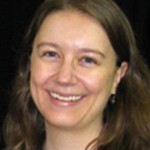
Stephanie E. McCalla, PhD
Assistant Professor, Chemical and Biological Engineering
Montana State University
Project Title: Probing the Specificity of Digital Isothermal Amplification for the Detection of Small RNA Heart Attack Biomarkers
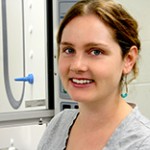
Rebecca O’Connor, PhD, RN
Assistant Professor, Family and Child Nursing/Nursing Research Faculty, CCTR
University of Washington/Seattle Children’s
Project Title: A Pilot Feasibility Study of the Community-Engaged Clinical Research Model in East African Immigrant Black Youth with Type 1 Diabetes
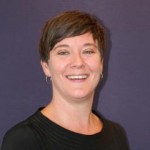
Sujata Pradhan, PT, PhD
Assistant Professor, Rehabilitation Medicine – Physical Therapy
University of Washington
Project Title: Defining Physical Activity Levels and Their Relation to Physical Function in Individuals with Parkinson’s Disease

Sherene Shalhub, MD, MPH
Assistant Professor, Surgery-Vascular Surgery
University of Washington
Project Title: Factors Influencing Dissection Related Early Aneurysmal Degeneration
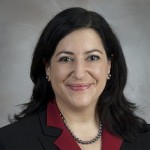
Susan S. Tavernier, PhD, CNS, RN, AOCN(R)
Assistant Professor, School of Nursing
Idaho State University-Meridian
Project Title: Impact of Patient Voice on Outcomes

Core Program
- K or R Submission Required Learning Activities and Assignments
- Monthly activities and assignments are designed to lead to a submission of a K or R application by the end of the program.
- Mentorship
- A central component of the Translational Research Scholars Program is focused mentored research. The primary mentor, identified in the application form must provide a letter of support. They must have research expertise and experience mentoring and are expected to provide ongoing support and guidance to their scholars during the duration of the program. Mentor responsibilities include:
- Participate in selected program activities
- Assist in K or R grant development including reviewing selected assignments
- Monthly Teleconference Check-ins
- Scholars will have a monthly 90 minute check-in for didactic training, updates, and peer-to-to peer feedback.
- Scholars will provide a Work-in-Progress (WIP) at scheduled intervals.
- Grant Development
- Scholars will provide feedback on aims and significance and innovation to assigned group members.
- Expert reviewers will provide additional feedback on aims and significance and innovation.
- Face-to-Face Meeting (Travel will be provided to Scholars outside of Seattle area.)
- Scholars will participate in at least one face-to-face meeting to enhance interactions, amongst Scholars and provide grant development training.
- A central component of the Translational Research Scholars Program is focused mentored research. The primary mentor, identified in the application form must provide a letter of support. They must have research expertise and experience mentoring and are expected to provide ongoing support and guidance to their scholars during the duration of the program. Mentor responsibilities include:
Requirements/Commitments
Scholars are expected to:
- Commit to a minimum of 4 hours a week to scholar activities.
- Complete monthly assignments. Selected assignments will be reviewed by their mentor.
- Submit a K or R grant by June 2018.
- Attend face-to-face meetings and complete any additional required training.
How to Apply
Please read all instructions completely before applying and provide all required items on the application form. We currently support online applications. We will begin accepting applications December 7, 2016.
Potential scholars must be nominated by Department Chair/Department Head/Dean (or equivalent position).
Application Items to Complete
- 1) Department Nomination Letter (or equivalent)
- Must include statement of commitment to provide 10%-20% release time for applicant to participate in the program
- 2) Primary Mentor Letter
- Must outline role and commitment to the applicant
- Experience in research and mentoring
- How will the Translational Research Scholars Program benefit your career development?
- How will the program facilitate submission of your grant proposal?
- What are your longer term (next 5 years) translational and/or clinical research goals?
- Describe your proposed research project for your K or R-series application
- Include the following sections in your proposal:
- Specific Aims
- Significance
- Innovation
- Approach
- Translational Impact
- Detail your plans for use of up to $10,000 in research funds
Frequently Asked Questions
Translational Research Scholars Program
Are basic science researchers eligible to apply?
Yes. The translational science spectrum represents each stage of research along the path from the biological basis of health and disease to interventions that improve the health of individuals and the public. It includes basic, pre-clinical, clinical, clinical implementation and public health research. Learn more about translational science.
Are post-doctoral fellows eligible to apply?
No. Applicants must have a faculty appointment at UW or ITHS partner institutions in the WWAMI region.
The program is one year starting March 1, 2018 and ending February 28, 2019.
How many scholars will be selected?
We hope to select up to 10 scholars.
What is the type and amount of funding provided to each scholar?
ITHS will support up to $10,000 in research funds for one year.
Review the NIH guidelines for allowable costs
In addition, the school/department/division agrees to provide 10-20% release time for their selected scholars. (This must be stated in the letter of support.)
Are investigators working on translational research globally eligible for this award?
Yes. The program does support research outside the United States and investigators with a focus on global health. Investigators conducting research outside the USA are still expected to meet the participation requirements.
What is a resource sharing plan, and am I required to submit one?
NIH considers the sharing of unique research resources developed through NIH-sponsored research an important means to enhance the value and further the advancement of research. When resources have been developed with NIH funds and the associated research findings published or provided to NIH, it is important that the results be made readily available for research purposes to qualified individuals within the scientific community.
What Scholars Say
 "The pilot data acquired during the Translational Research Scholars Program will help establish feasibility and provide preliminary data to support a larger NIH-funded study. The funding from ITHS has been crucial in getting some of this pilot data.”
"The pilot data acquired during the Translational Research Scholars Program will help establish feasibility and provide preliminary data to support a larger NIH-funded study. The funding from ITHS has been crucial in getting some of this pilot data.”
Learn MoreDr. Sujata Pradhan, UW Department of Rehabilitation Medicine
 "The funding I got through the Translational Research Scholars Program helped me to do some experiments in my lab. But, more importantly, the actual programs I was partaking in, the monthly conference calls, onsite visits, career development aspects, and other things helped me put together a strong R21 application.”
"The funding I got through the Translational Research Scholars Program helped me to do some experiments in my lab. But, more importantly, the actual programs I was partaking in, the monthly conference calls, onsite visits, career development aspects, and other things helped me put together a strong R21 application.”
Learn MoreDr. Kirk Hevener, Idaho State University
 "The Translational Research Scholars Program makes me feel connected to a larger network of researchers that I can call upon. I think I would feel isolated without that.”
"The Translational Research Scholars Program makes me feel connected to a larger network of researchers that I can call upon. I think I would feel isolated without that.”
Learn MoreDr. Cynthia Curl, Boise State University
 "Because of the Translational Research Scholars Program, I reached out to someone I didn’t know particularly well, but whose science really overlapped well with mine. This interaction helped me improve the science and think broadly about treatment and clinical implications for my work.”
"Because of the Translational Research Scholars Program, I reached out to someone I didn’t know particularly well, but whose science really overlapped well with mine. This interaction helped me improve the science and think broadly about treatment and clinical implications for my work.”
Learn MoreDr. Sara Kover, UW Department of Speech & Hearing Sciences
Contact Us
Should you have questions about the program, need more information, or would like to speak with one of the Program Directors prior to applying, please feel free to contact us through the form below.
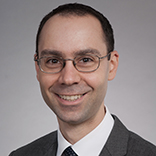
Joseph M. Cerimele, MD, MPH
Acting Assistant Professor
Psychiatry and Behavioral Sciences
University of Washington
Joseph M. Cerimele, MD, MPH
Project Title: Primary Care Clinicians’ Experiences Treating Patients with Bipolar Disorder
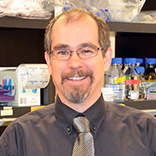
Brian D. Cherrington, MS, PhD
Assistant Professor
Zoology and Physiology
University of Wyoming
Brian D. Cherrington, MS, PhD
Project Title: Peptidylarginine Deiminase Inhibitors as Epidrugs for Pituitary Tumors
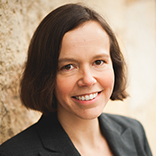
Allison Cole, MD, MS
Assistant Professor
Family Medicine
University of Washington
Allison Cole, MD, MS
Project Title: Facilitators and Barriers to Implementation of a Proactive Colorectal Cancer Screening Program across the WWAMI Region



